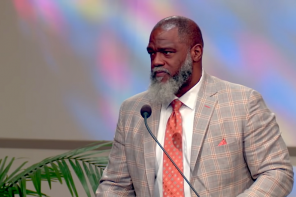Sex in Crisis: The New Sexual Revolution and the Future of American Politics
By Dagmar Herzog
(Basic Books, 2008)
What inspired you to write Sex in Crisis? What sparked your interest?
Sex in Crisis has a great deal to do with my prior book, Sex after Fascism: Memory and Morality in Twentieth-Century Germany (2005), which offered a major revision of our assumptions about the Third Reich’s sexual politics and its aftermath, including close attention to the complicity of the Christian churches under Nazism. In his book American Fascists, Chris Hedges had drawn direct parallels between the religious right in the United States and the Nazis, but I thought that was not the point. As a Holocaust scholar, I’m deeply uncomfortable with direct parallels, but what I did learn from studying the Nazis was that they were quite pro-sex for their own followers, while denigrating “Jewish” sex as dirty and immoral. They had it both ways, and that was a significant key to their appeal. Intuitively, I thought there was a comparable dynamic going on with the religious right.
While I was researching and writing Sex in Crisis, I was continually struck by the extent to which there was a massive misperception of what the religious right stood for. So many saw only the puritanical and homophobic side of the religious right coin; they didn’t see the Christian vibrator Web sites or the detailed evangelical sex advice manuals. At the same time, the religious right was indeed doing tremendous damage, gutting sex education in US schools and eroding HIV prevention in Africa–all in the name of morality.
As someone who was raised in the Bible Belt South, in a deeply religious family, I was horrified by the religious right’s new distortion of Christianity and its deleterious impact on national and international health policy. I wanted to make sense of how the religious right had succeeded in redirecting the national terms of conversation about sex: spouting ugly homophobia, reshaming women’s sexuality in particular, increasingly going after contraception and not just abortion, insisting that sex before marriage would have horrible consequences (even though 95 percent of Americans have had premarital sex), and mocking the moral values of self-determination and consent.
What’s the most important take-home message for readers?
The religious right has been enormously sophisticated in reshaping the national conversation on sex not least by creatively adapting aspects of the old sexual revolution of the 1960s-70s–and also the women’s movement’s push for “orgasm equity”–for its own sexually repressive ends. Three points are especially important:
1. Far from being uptight, the religious right is lasciviously explicit. And far from being anti-sex, it is very pro-sex; within heterosexual marriage, that is. The religious right promises, to those who will follow its rules, decades of spectacularly blissful marital orgasms. (“It’s like having a million tiny pleasure balloons exploding inside of me all at once,” as one evangelical women’s advice book puts it; another says: “Orgasm is an integral part of God’s design for sex.”) Repression alone, in short, is not sufficiently appealing. Sex sells–also for conservatives. Without the promise of pleasure, the religious right would not have found nearly as many adherents as it has.
2. The religious right succeeded above all by secularizing its message. It sounds paradoxical, but it’s vital. Part of the move had to do with physical health: exaggerating the dangers of sexually transmitted diseases and lumping treatable and untreatable, bearable and unbearable, diseases together for maximum scare value (all the while mendaciously denigrating the effectiveness of condoms). But the biggest move was capturing the terrain of therapy-speak about psychological health. It’s not about hellfire anymore. Repression has now been repackaged as promotion of mental well-being. Suddenly everything is about low self-esteem: homosexuality, abortions, pornography, premarital sex. The Bush administration mandated in 2006 that high school curricula dependent on federal funding (and at that point 46 of the 50 states took federal funding for abstinence ed) must inform students that sex before marriage could lead to depression and suicide.
3. The religious right plays on the most elemental fears about the relationships (or lack thereof) between bodies and emotions, performance and intimacy, lust and love. A big reason for the success of conservative arguments in the Bush years had to do with the extraordinary panic that was unleashed in the media around the prospect of the death of postmarital desire. The panic was that not just women but also men were too tired after a long day of work; weren’t attracted to their boring, naggy, imperfectly-bodied spouses; would rather masturbate to porn on the computer, etc. Conservatives rushed in with feminist-seeming arguments about how even when two people were in bed with each other, their heads and hearts were really elsewhere; they spoke to widespread feelings of emotional alienation and anomie, also specifically within marriage, and about how too many wives feel like sperm depots for emotionally insensitive husbands. The manufactured anxiety about the death of postmarital sex explains a great deal about the sudden incapacity of Americans to defend premarital sex.
Is there anything you had to leave out?
In retrospect, I wish I’d included more on people’s perceptions that American culture is hardly conservative but rather loose and free: full of alcohol-fueled hookups and Craigslist-facilitated trysts, and that nobody adheres to the conservative rules and rhetoric anyway, including the conservatives themselves (see Ted Haggard or Sarah Palin). So why be alarmed by the religious right, and/or (and this is in some ways the opposite argument) the perception that sex quite apparently is not so happy-making for many people, and thus that the conservatives have a good point when they try to be more restrictive and protective and didactic. Also, many people think the religious right is by now just a paper tiger, and they love lecturing me (as though I hadn’t spelled this out myself in the early pages of the book) on how evangelicals are increasingly turning toward what had been traditionally ‘left’ concerns, like the environment, economic justice, war, or global health.
So I wish I’d make it clearer that I think American sexual culture is schizophrenic, that sexual opportunity is indeed everywhere, but simultaneously sexual rights have been quite concretely eroded. That we have the highest rates of STDs and unwanted pregnancies in the industrialized world, and the lowest contraceptive use, and sex ed in this country is in tatters. That someday we will wonder how the country went crazy for eight years and allowed itself to be bullied over these most intimate aspects of human life.
What are some of the biggest misconceptions about your topic?
That the religious right is a Make War Not Love crowd, rather than a Make War And Love crowd. That you can’t understand the rise of the religious right if you focus only on virginity rings; you have to look at the astonishingly graphic advice on how to make your partner come, or the recommendations for spanking and light bondage, etc., in online Christian advice sites like The Marriage Bed.
Another big misconception is that the best way to resist conservatism is to expose conservative hypocrisy. One of the most important things I learned in researching evangelical sex advice and therapy culture (which is a multibillion dollar industry) is how crucial exhibitionist, preemptive confessionalism has become. Evangelical advice-givers like to brag about the wild promiscuity of their youth, and their many adulterous misdeeds, or to confess in anguish the abortions they forced on girlfriends or the porn they once so frequently indulged in, before moving on to advise others how to get onto the straight and narrow. It’s titillating. But it also preempts in advance any traditional liberal strategy of muckraking exposé of conservative incoherence. There’s nothing to expose; the sins have all been luxuriously confessed.
Did you have a specific audience in mind?
There had been many books on the religious right, but none had analyzed its sexual-political strategies in detail. So in that sense I was writing for general readers who cared and worried about the rightward drift of American culture. But I’m pleased that also evangelical conservatives read the book and took its findings seriously; I was privileged to be on radio talk shows discussing the issues with evangelical theologians and ministers. Above all, though, I had my own incredible undergraduate students at Michigan State, where I taught for many years, in mind. They were so morally searching and perceptive, and the book is primarily a tribute to them. I’m thrilled that the book is being read and debated now in university classrooms.
Are you hoping to just inform readers? Give them pleasure? Piss them off?
I hate pissing people off; it’s my least favorite thing. I’m actually quite conflict-averse. My biggest goals were to communicate just how malicious (and by no means moral) the religious right’s effects have been, to show how people’s deepest longings and fears around sex and love can be so easily manipulated, to remind Americans how rapid the onslaught has been and how recently we actually had a great deal more self-confidence in defending our sexual privacy and rights, and to help people imagine alternative ways of organizing sexual cultures that are more generous and curious rather than punitive, and far more respectful of individual diversity and self-determination. Obama winning the last election was a very good thing. But the damages done in the past years are lingering on, and the religious right is still having a big impact on global health policy as well as policy and education at the state level.
What alternative title would you give the book?
How the Religious Right did the Sex Work for the Republican Party
How do you feel about the cover?
It’s great. The red, white, and blue makes clear this is about national politics–but also the style has a whiff of ’60s pop art.
Is there a book out there you wish you had written? Which one? Why?
I have huge admiration for Stephanie Coontz’s Marriage, A History. I think it’s brilliant–ethically thoughtful and empirically rigorous at once.
What’s your next book?
I just finished an edited collection, Brutality and Desire: War and Sexuality in Europe’s Twentieth Century–which ranges from the Armenian genocide in the 1910s via Auschwitz and Algeria to Bosnia in the 1990s. The horrific sexual violence in the former Yugoslavia, and the international recognition that the rapes were war crimes, has prompted more research into sexual violence in prior wars. But wars have often also provided opportunities for joyful consensual romances and topsy-turvy crossing of boundaries. Both sides of sexuality need to be better understood.




